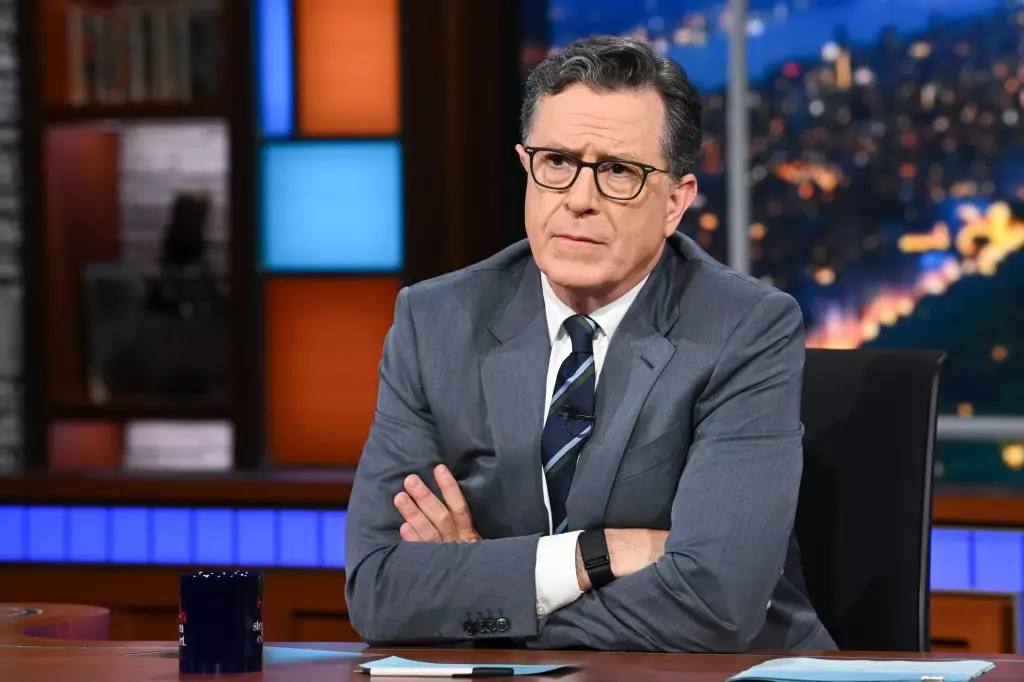In an era increasingly dominated by censorship and political polarization, comedians like Stephen Colbert serve as vital custodians of free speech. By weaving satire into the fabric of mainstream media, they scrutinize authority figures and challenge prevailing narratives. Colbert’s recent impassioned defense of Jimmy Kimmel exemplifies this role. His pointed jokes aimed at Disney’s censorship and FCC interference aren’t mere entertainment—they’re acts of resistance. Comedy, traditionally dismissed as mere frivolity, possesses an underappreciated power to question, critique, and inspire societal introspection. When Colbert lampoons FCC Chair Brendan Carr’s comments or Disney’s overreach, he underscores that the health of a democracy hinges on free and open debate. In this landscape, humor acts as both shield and sword, enabling individuals to confront uncomfortable truths without censorship’s chilling grip.
Political Winds and Cultural Battles
Colbert’s comments do not exist in a vacuum—they are rooted in a tense political landscape where freedom of speech is under assault from multiple fronts. The controversy surrounding Jimmy Kimmel’s remarks about Charlie Kirk’s killer reveals how easily discourse can be weaponized. When local stations preempt a show for “objecting” to political commentary, it marks a troubling shift toward ideological gatekeeping. These acts threaten the foundational principles of diverse viewpoints and open dialogue. Colbert’s critique highlights that such suppression isn’t merely strategic—it’s ideological. It signals a disturbing desire to silence dissent or uncomfortable opinions under the guise of moral or community standards. His humor becomes a rallying cry: the fight for free expression must persist, even amidst pressure from powerful corporate or political influencers.
Resilience Through Artistic Integrity
An often-overlooked aspect of Colbert’s commentary is his personal resilience amid industry turbulence. Though “The Late Show” was canceled—a move he suggested might be politically motivated—his response was one of renewed commitment rather than defeat. His reflection on loving his craft and country with renewed fervor reveals a deeper understanding: the fight for integrity in media is ongoing, and enduring setbacks are catalysts for greater resolve. Colbert’s celebration of winning an Emmy amid controversy exemplifies that art and humor are acts of defiance, not capitulation. They serve as reminders that cultural institutions are worth defending, even when they are under attack. His declaration to “stay strong” and “be brave” encourages others to resist suppression and to use their voice unapologetically.
The Brotherhood of Comedians and the Power of Solidarity
The camaraderie among late-night hosts, exemplified by projects like Strike Force Five, signals an essential collective resistance. Their solidarity demonstrates that humor isn’t just individual bravado but a communal act of resilience. These comedians, while entertaining millions, also form an unspoken coalition dedicated to defending freedom of speech. Colbert’s acknowledgment of Kimmel’s efforts to secure an Emmy and his mutual support during times of crisis showcase the importance of unity amid adversity. Humor, in this context, becomes a form of activism—an unbreakable bond that fosters courage and ensures that the voice of dissent remains loud and clear. It’s a reminder that, in the fight for democracy, collective humor can serve as a powerful tool to resist authoritarian impulses and promote a free exchange of ideas.
The Imperative of Courage in Media
Ultimately, Colbert’s recent comments lay bare a fundamental truth: the defense of free speech requires continuous courage. As media figures confront external threats—whether political, corporate, or societal—they embody a crucial resistance. When comedic voices stand up to corporations like Disney and regulatory bodies like the FCC, they push back against an encroaching desire to control narratives. The courage to speak truth to power, to question authority—even when this invitation invites backlash—is essential for maintaining a vibrant, free society. Humor becomes an act of defiance, a declaration that even in the face of censorship and suppression, the human spirit’s need to express, critique, and challenge remains unbroken.
In a world where silence can be bought or mandated, comedy emerges as one of the last bastions of genuine free expression. Colbert’s unwavering stance reminds us all that the fight for voice and liberty is ongoing—and that sometimes, the most powerful weapon of protest is a sharp joke.
